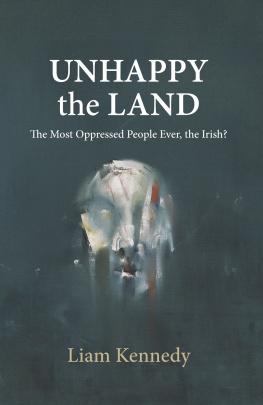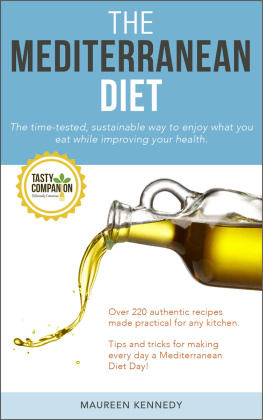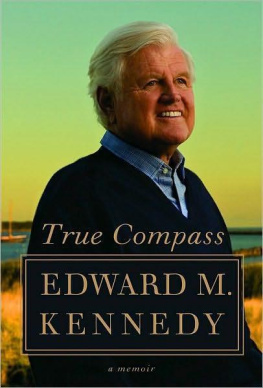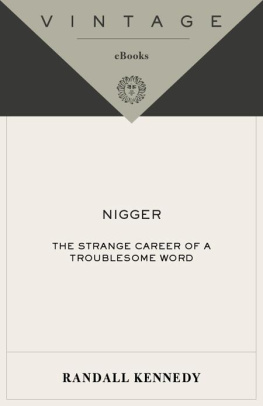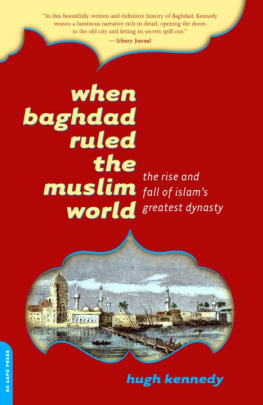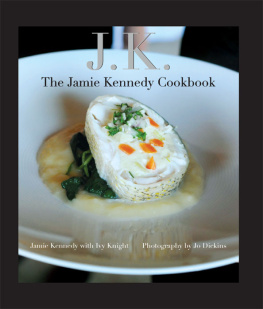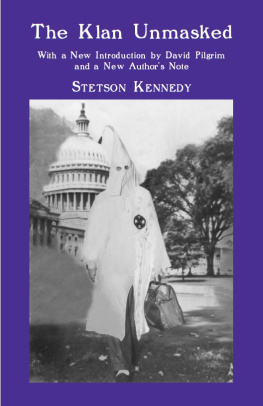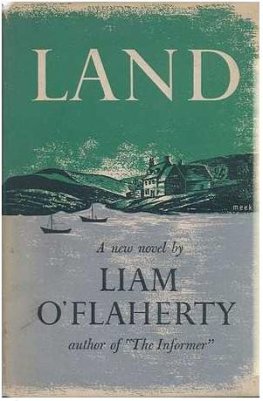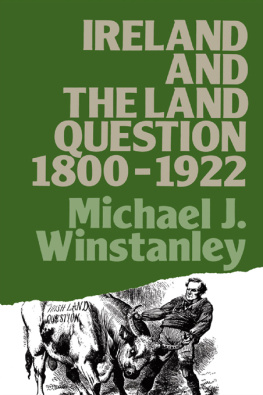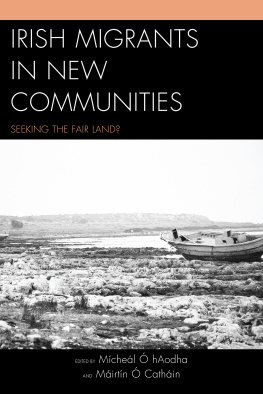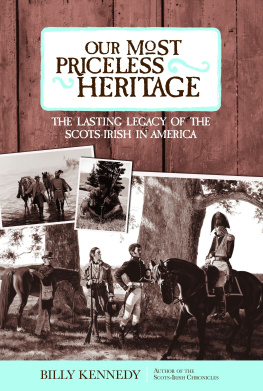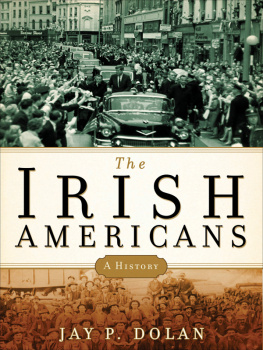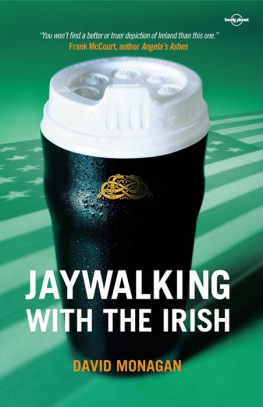Kennedy - Unhappy the land: the most oppressed people ever, the Irish?
Here you can read online Kennedy - Unhappy the land: the most oppressed people ever, the Irish? full text of the book (entire story) in english for free. Download pdf and epub, get meaning, cover and reviews about this ebook. City: Sallins, year: 2016;2015, publisher: Merrion Press, genre: Politics. Description of the work, (preface) as well as reviews are available. Best literature library LitArk.com created for fans of good reading and offers a wide selection of genres:
Romance novel
Science fiction
Adventure
Detective
Science
History
Home and family
Prose
Art
Politics
Computer
Non-fiction
Religion
Business
Children
Humor
Choose a favorite category and find really read worthwhile books. Enjoy immersion in the world of imagination, feel the emotions of the characters or learn something new for yourself, make an fascinating discovery.
Unhappy the land: the most oppressed people ever, the Irish?: summary, description and annotation
We offer to read an annotation, description, summary or preface (depends on what the author of the book "Unhappy the land: the most oppressed people ever, the Irish?" wrote himself). If you haven't found the necessary information about the book — write in the comments, we will try to find it.
Unhappy the land: the most oppressed people ever, the Irish? — read online for free the complete book (whole text) full work
Below is the text of the book, divided by pages. System saving the place of the last page read, allows you to conveniently read the book "Unhappy the land: the most oppressed people ever, the Irish?" online for free, without having to search again every time where you left off. Put a bookmark, and you can go to the page where you finished reading at any time.
Font size:
Interval:
Bookmark:

UNHAPPY THE LAND
This book is dedicated to two friends, historians both: Ruth Dudley Edwards and David A. Wilson.
UNHAPPY
THE LAND
The Most Oppressed People
Ever, the Irish?
LIAM KENNEDY

First published in 2016 by
Merrion Press
8 Chapel Lane
Sallins
Co. Kildare
2016 Liam Kennedy
British Library Cataloguing in Publication Data
An entry can be found on request
978-1-78537-028-1 (Paper)
978-1-78537-029-8 (Cloth)
978-1-78537-030-4 (PDF)
978-1-78537-047-2 (Epub)
978-1-78537-048-9 (Mobi)
Library of Congress Cataloging in Publication Data.
An entry can be found on request
All rights reserved. Without limiting the rights under copyright reserved alone, no part of this publication may be reproduced, stored in or introduced into a retrieval system, or transmitted, in any form or by any means (electronic, mechanical, photocopying, recording or otherwise) without the prior written permission of both the copyright owner and the above publisher of this book.
Contents
Preface and
Acknowledgements
T hese essays were so long in the making, assisted by long periods of neglect it has to be acknowledged, that my inventory of intellectual and other debts is more than usually long. Many will disagree with my arguments, including some or possibly all of those given mention below. In the beginning I suppose there are the historians. These, but not only these, caused me to think (or make my brain hurt, as one colleague puts it). I have benefited in many ways from reading and talking to a gifted generation of historians of Ireland. These include, and I am sure to omit some dear colleagues and friends: Jonathan Bardon, Paul Bew, Andy Bielenberg, Marie Coleman, Vincent Comerford, Sean Connolly, Louis Cullen, Mary Daly, Alun Davies, Enda Delaney, David Dickson, Richard English, Sean Farrell, Diarmaid Ferriter, David Fitzpatrick, Roy Foster, George Gandy, Peter Gray, Brian Gurrin, David Johnson, Christine Kinealy, Michael Laffan, Joe Lee, Breandn Mac Suibhne, Patrick Maume, Fearghal McGarry, James McGuire, Don MacRaild, Bob Morris, John A. Murphy, Willie Nolan, Gearid Tuathaigh, Mary ODowd, Sean OConnell, Alan ODay, Philip Ollerenshaw, Henry Patterson, Seamus Smyth, Willie Smyth, Brian Walker, Irene Whelan, Karin White. And there is always Cormac Grda, saoi is duine sr-lannta ar fad .
Then there are the historians of Ireland from farther afield in North America who have done so much to enrich our understanding of our own wee country (as I have learned to say after years of northern domicile): the inspirational Don Akenson and the rest of that coterie of brilliant scholars which includes Jim Donnelly, the late Peter Hart, David W. Miller and Kerby A. Miller. It has been my privilege to welcome them to my home in Belfast. Some said they enjoyed the accommodation, despite a certain lack of facilities that are common, apparently, in the New World.
Having one foot in the social sciences, I must, of course, pay tribute to the historically-minded social scientists, on both sides of the Atlantic. Among these are: Graham Brownlow, Dominic Bryan, Brice Dickson, Graham Gudgin, Joel Mokyr, Lucia Pozzi, Katy Radford, Joe Ruane, Peter Solar, Jennifer Todd. I owe an indirect debt to writers of various kinds. Their influence seeped into the writing in sometimes unlikely places. There are many and I will only mention Paul Durcan, Michael Longley, Fintan OToole and Stewart Parker.
Literary and cultural historians have sometimes spoken to me. John Wilson Foster was good enough to read through the entire text and make incisive observations. I want also to mention Eamonn Hughes and Edna Longley, both of this parish, and one of my oldest school friends, Denis Sampson, the biographer of John McGahern. Irene Boada Montagut, the author of a feminist study of Irish and Catalan short stories, was hugely warm and supportive. As George Bernard Shaw might have had it ( Man and Superman ), in more recent times, and after much prevarication, she was good enough to encourage me to propose that I marry her.
Three of these essays have been previously published. Chapter One appeared many years ago in my Colonialism, Religion and Nationalism in Ireland under the title Out of History: Ireland, That Most Distressful Country. Chapter Two, The Planter and the Gael: Explorations in Irish Ethnic History was co-written with Kerby A. Miller, Brian Gurrin and Gareth Davies and was published in The Imaginary of the Stranger: Encountering the Other edited by Karin White and Julie Costello. Kerby Miller and I would like to acknowledge with gratitude the financial assistance of the National Endowment for the Humanities and the Guggenheim Foundation towards the research on which this chapter was based. I hope to develop some of these themes further in the future. Chapter Nine appeared in a collection of essays edited by Bruce Stewart, Hearts and Minds: Irish Culture and Society under the Act of Union . On the whole, I have left the texts as they were, apart from some minor alterations, including stylistic changes. I might add, though it is probably of only autobiographical interest at this stage, that the bulk of Chapter Four, Cry Holocaust: The Great Irish Famine and the Jewish Holocaust comes from my inaugural lecture at Queens University, Belfast in 2004. I had intended publishing it then but life got in the way.
These pages might never have been rescued from the obscurity of my filing cabinet but for the persistent encouragement of my editor, Lisa Hyde. I must have set a record for broken deadlines and, indeed, for a year or two I had forgotten completely that I was supposed to be working on this volume. Lisa got me back on track, with tact and creative suggestions. Conor Graham was a supportive publisher, despite the many ups and downs, and was equally keen to see the project through to a conclusion. To both, thanks a million, as my daughter says (though not very often).
The volume itself is dedicated to two remarkable historians and friends of mine, Ruth Dudley Edwards and David A. Wilson. Each has stayed with me in Rugby Road, Belfast; each has talked late into the night; each has helped put the world to rights. I have spent time with them, in London and Toronto respectively, and look forward to continuing the conversation. But for their wise words I would still be floundering in a lake of alternative possibilities. May they long continue to light up the firmament of Irish and trans-Atlantic studies.
Liam Kennedy
Institute of Irish Studies,
Queens University, Belfast
May Day, 2015
List of Tables
Violent deaths: the First World War, 191418
Language Survival and State Structure in Western Europe
Deaths of Infants under One Year Old per 1,000 Live Births (Ireland=100)
Protestant British surnames from the 1600s, and the proportion (%) who had been absorbed into the Catholic ethno-religious bloc by 1911
The Bells of County Dublin in 1911: a comparison of selected occupations by religion
Five Indicators of Economic Progress or Non-Progress in Ireland, North and South, 18001914
Comparing the texts of the Ulster Solemn League and Covenant and the Proclamation of the Irish Republic
Conceptualising the Conflicts in Ireland, 191923
Introduction
As a new year beckons, I am confident that Irish people will draw on the character and resilience they have so often shown to craft a vision of our shared Irishness that is defined by the values of care, solidarity, trust and responsibility.
Next pageFont size:
Interval:
Bookmark:
Similar books «Unhappy the land: the most oppressed people ever, the Irish?»
Look at similar books to Unhappy the land: the most oppressed people ever, the Irish?. We have selected literature similar in name and meaning in the hope of providing readers with more options to find new, interesting, not yet read works.
Discussion, reviews of the book Unhappy the land: the most oppressed people ever, the Irish? and just readers' own opinions. Leave your comments, write what you think about the work, its meaning or the main characters. Specify what exactly you liked and what you didn't like, and why you think so.

